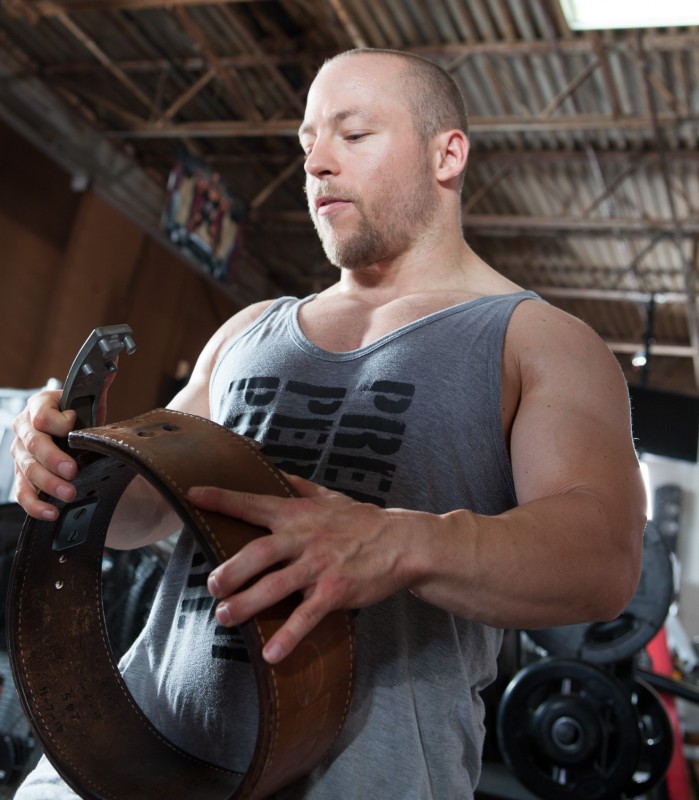
“Focus on the process, not the outcome.”
“Fall in love with the journey.”
“You just need to think about where you’ll be three years from now.”
Chances are you’ve heard at least one of the above statements, and found yourself shaking your head in the moments that followed. The fitness industry is rife with coaches yipping and yapping about how long-term success in the gym is a result of learning to focus on the process of daily, incremental improvement, rather than your desired outcome (think: etched out abs, bulging biceps, and a deadlift as heavy as a small house). Or, to put it in plain English: if all you focus on is the fact that you’re not big enough, weak, or too fat, you’re in for a long, uncomfortable ride.
This is actually some of the best fitness advice you’ll ever hear.
Targets, like adding 50 pounds to your squat, cutting down to six-percent body fat, or losing 17 pounds of fat, are all outcome-based goals. None of them are “bad” or “wrong” goals by any means. But, the problem with narrowing your focus to only outcome-based goals is that you have no control over when they’ll happen, and no attention is paid to how to get there. So when you find yourself flicking back and forth between progress pictures each week, playing a cathartic game of “spot the differences” to see if you’re “there” yet, all you’re really doing is finding reasons to be disappointed about a self-professed lack of progress.
RECENT: Yoga for the Serious Strength Athlete
The thing is, nobody ever tells you how to focus on the process of reaching your goal rather than achieving the outcome itself. Instead, you’re simply chastised for focusing on the wrong thing, then told to go on your merry way. While it would be foolish to attempt an article that outlines the specific process for what’s truly an immeasurable variance in goals, there are principles that apply to “the process”, no matter what you want to achieve.
But first, a short story of my own transition from being outcome driven to process focused.
Like many new (and young) lifters, when I experienced my first biceps curl done properly, I was hooked, and my mind exploded with visions of building Arnold’s perfect, peaking biceps, Tom Platz’s enormous wheels of steel, and the awe-inspiring back of Dorian Yates. At the time, with little understanding of what made the physiques of Arnold, Platz, and Dorian possible (genetics, years of intensely focused training, drugs, and an unwavering, indomitable will), I, of course, sought to attain a similar look.

Which meant my training wasn’t about doing one or two more reps than my last workout, doing more work in less time, or executing movements with better control. Rather, it was about asking, “What can I do to be bigger today?” This led to training with dangerously heavy loads, compromised form, a slew of joint issues, and injuries that were entirely avoidable.
And nutrition? I didn’t care what I ate (for the most part); I only knew that I had to eat in order to grow. And eat I did. Meals throughout the day were filled with what most would agree are “healthy” foods. Chicken, steak, rice, quinoa, nuts, smoothies, bagels, that sort of thing. Then, on the quest for muscle growth, nights turned into every devout IIFYM’ers wet dream. Waffles, ice cream, cookies, fast food, and the list goes on. This one-track mind led me down a path riddled with disappointment, as I focused solely on achieving a look that I had no control over, and frankly, was an impossible target. Not to mention one that—if it were even possible—would take decades to achieve, not months.
If only I’d then known what I know now. I’d know that emulating the physique of Dorian Yates simply isn’t going to happen. I don’t have the genetics, the hours per day to devote to training, and I don’t have the desire to push the upper limits of drug use. But, what I CAN focus on is becoming the best version of me. A cheesy statement? Absolutely, but there’s no other way to put it. And the same applies to you.
You can’t control the outcome — only your actions.
You don’t have much, if any, control over how your body responds to your training or nutrition. But what you DO have control over is the actions you take each day, and the little, impactful things you can do to improve. And that, my friend, is how you see continual progress and learn to transition from being outcome-driven to being process-focused.
If we fast-forward to today, I barely give my weekly progress pictures half a glance. I take them because I work with a coach who needs them to see where things are sitting, but they have no bearing on my daily actions. Which include:
- Sticking to my nutrition plan 95% of the time.
- Ensuring my recovery is a priority.
- Beginning each training session with the intention to challenge myself and use more weight, more control, or knock out a few more reps each time I go back through a session.
- If there’s anything extra I can do (supplements based on what my body needs), extra restorative measures (like Yoga), I make sure to do so.
And that’s it. On the long, winding path to building a jacked, powerful, jaw-dropping physique, these are the only things that you and I truly have control over. This is what it really means to focus on the process.
I know this doesn’t sound like a ton of fun.
At the end of the day, training, regardless of what you do it for, is about improvement. And improvement doesn’t happen by leaps and bounds overnight. Improvement happens as a result of small, impactful actions (like being a responsible adult and drinking water or eating your damn vegetables) ruthlessly executed each day, without expectation of a rapid, miracle transformation. There’s no way to dance around this. Wanting to become bigger, stronger, or leaner overnight is normal. Hell, I’d still love for things to work out that way. But, they don’t. So, instead, I challenge you to focus your efforts on the small actions that will move the needle forward. Consider this your yearly reminder to focus on what’s in your control, and let time, consistent execution, and patience work their magic. Because they will, every single time — if you stop trying to achieve your goal yesterday. As I lead one of my most popular elitefts articles with, tissue (fat loss, strength, progress) takes time.











1 Comment